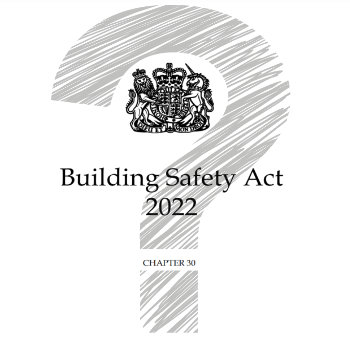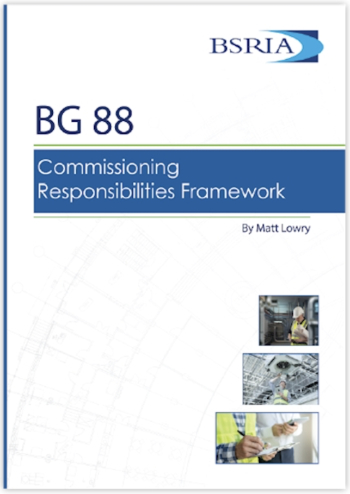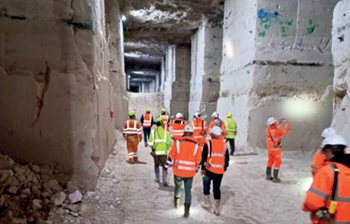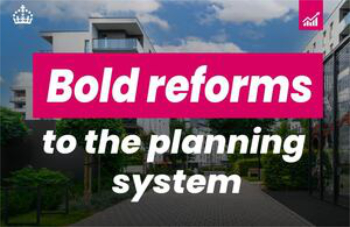Domestic boiler market 2019
Contents |
[edit] Introduction
While cooling is often mentioned in the context of the impact climate change might have on its rising demand and consequently on the energy demand that growth in cooling need is likely to cause, heating is often somewhat neglected in global discussions on changes that are needed to reduce the CO2 emission levels. It is therefore worth having a closer look at the global heating market's performance as it provides a picture worth considering in further discussions about the net zero carbon future.
[edit] Market growth
The latest release of BSRIA heating reports with global outreach reveals that the world domestic boiler market has grown by 6% year on year in 2019, and sales of non-condensing boilers accounted for 48% of total sales across the world.
While condensing boilers dominate in the EU markets and are making stronger inroads in Turkey and the North American market, the non-condensing wall hung and floor standing boilers are prevalently sold in European countries outside the EU and across Asia.
Gas boilers (which account for the vast majority of sales worldwide) are still considered as good news in parts of the world, where coal was a basic heating fuel not that long ago. Gas prices that, with few exceptions, are usually lower than the price of electricity, help retain consumers.
Out of the total of some 15.6 million units sold globally, 68% are sold as replacements of older units and 32% are still installed in the newly built dwellings.
Boilers are usually installed to provide both heating and domestic hot water – such units accounted for some 83% of the global market in 2019. They are a convenient solution for both end users and installers.
[edit] Projections
So, what does the future hold for this market segment? Technologies that could displace boilers in homes are already available (heat pumps) and in some parts of the world policies are providing strong support for their uptake. Overall, heat pumps account for some 19% of the domestic heating market globally.
Research and development are intensifying to roll out green gas solutions, including the use of biogas and hydrogen, with some serious challenges still to overcome.
With strong regional differences in future performance, BSRIA has forecast the overall global boiler market to remain broadly flat between 2019 and 2024, before taking the impact of COVID-19 pandemic into consideration. The latter is likely to cause strong disruption in 2020 which will be assessed by the BSRIA team later in 2020.
The BSRIA global research programme on domestic and commercial boiler markets allows for analysis of the market dynamics on a global, regional and country levels, with country in-depth analysis available to support a more strategic decision taking process.
The studies provide a full understanding of the latest market trends in terms of sales development by product type, price evolution, structure of the supply, long-term forecast and analysis of driving forces.
This article was originally published as Domestic boiler market grew again in 2019, on the BSRIA blog on 29 April 2020. It was written by Aline Breslauer, Research Consultant, BSRIA WMI.
--BSRIA
[edit] Related articles on Designing Buildings Wiki
Featured articles and news
From studies, to books to a new project, with founder Emma Walshaw.
Types of drawings for building design
Still one of the most popular articles the A-Z of drawings.
Who, or What Does the Building Safety Act Apply To?
From compliance to competence in brief.
The remarkable story of a Highland architect.
Commissioning Responsibilities Framework BG 88/2025
BSRIA guidance on establishing clear roles and responsibilities for commissioning tasks.
An architectural movement to love or hate.
Don’t take British stone for granted
It won’t survive on supplying the heritage sector alone.
The Constructing Excellence Value Toolkit
Driving value-based decision making in construction.
Meet CIOB event in Northern Ireland
Inspiring the next generation of construction talent.
Reasons for using MVHR systems
6 reasons for a whole-house approach to ventilation.
Supplementary Planning Documents, a reminder
As used by the City of London to introduce a Retrofit first policy.
The what, how, why and when of deposit return schemes
Circular economy steps for plastic bottles and cans in England and Northern Ireland draws.
Join forces and share Building Safety knowledge in 2025
Why and how to contribute to the Building Safety Wiki.
Reporting on Payment Practices and Performance Regs
Approved amendment coming into effect 1 March 2025.
A new CIOB TIS on discharging CDM 2015 duties
Practical steps that can be undertaken in the Management of Contractors to discharge the relevant CDM 2015 duties.
Planning for homes by transport hubs
Next steps for infrastructure following the updated NPPF.
























